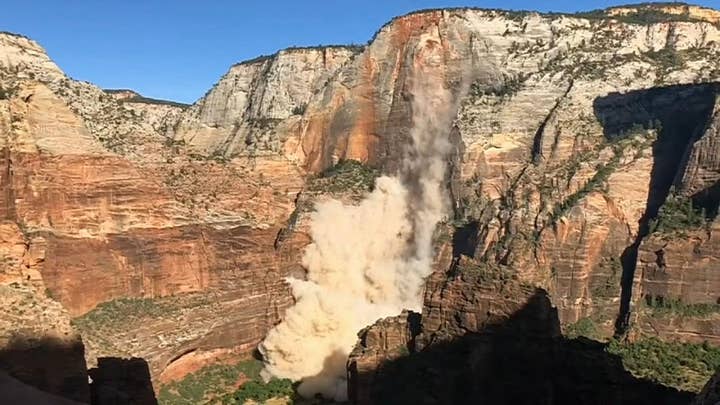Fox News Flash top headlines for April 9
Fox News Flash top headlines are here. Check out what's clicking on Foxnews.com.
The Trump administration announced plans on Wednesday to open up 2.3 million acres of land to hunting and fishing on more than 100 national wildlife refuges and fish hatcheries across the country – earning praise from hunting groups but derision from wildlife conservation organizations who called the move “tone deaf” as the country reels from the coronavirus pandemic.
The proposal would allow hunting and fishing for the first time at several national wildlife refuges from coast to coast, including San Diego Bay in California, Alamosa in Colorado, Bombay Hook in Delaware and Umbagog in Maine and New Hampshire and Everglades Headwaters in Florida.
It would also allow alligator hunting at three national wildlife refuges: Banks Lake in Georgia, Laguna Atascosa in Texas and Savannah in Georgia and South Carolina.
WASHINGTON BANS RECREATIONAL FISHING TO SLOW CORONAVIRUS SPREAD
In Arizona, hunters would be able to go after mountain lions and mule deer at Cabeza Prieta and bobcats, fox, and mountain lions at Buenos Aires, both national wildlife refuges. In Oregon, migratory bird hunting will be allowed for the first time at Wapato Lake and Hart Mountain national wildlife refuges.
“America’s hunters and anglers now have something significant to look forward to in the fall as we plan to open and expand hunting and fishing opportunities across more acreage nationwide than the entire state of Delaware,” Interior Secretary David Bernhardt said in a statement.
The plan, which was announced as part of the Interior Department’s annual review ahead of the upcoming hunting season, has a 60 day comment period for people to weigh on it.
The move drew quick praise from pro-sporting groups like the Boone and Crocket Club, which said it “would provide new or expanded recreational opportunities on 97 national wildlife refuges in almost every state.”
“The action today by Secretary Bernhardt to create new access opportunities on many of these properties shows the tremendous success of wildlife restoration efforts to build the sustainable populations that allow regulated hunting and fishing programs to expand,” Timothy C. Brady, the club’s president, said in a statement.
In contrast, conservation groups and pro-wildlife organizations criticized the proposal, both for its intent and its timing as the country tries to get the COVID-19 outbreak under control.
“Instead of responding to pleas by state and local officials for needed agency resources, assistance, and help during this generational pandemic,” Jayson O’Neill, the director of Western Values Project, said in a statement. “Secretary Bernhardt made a tone-deaf announcement that by no means could ever make up for the hunting opportunities and wildlife lost as a result of Trump’s deregulatory agenda decimating our public lands and environmental protections.”
O’Neill added: “Bernhardt clearly needs to reassess his priorities to make sure the necessities of American families and workers are met first. You’d think President Trump and Secretary Bernhardt would have learned from their reckless decision to waive national park fees and encourage visitors that risked countless lives.”
CLICK HERE FOR FOX NEWS' CONTINUING CORONAVIRUS COVERAGE
Bernhardt last month directed the National Park Service to waive entrance fees at all national parks that remain open during the coronavirus pandemic in an effort to aid public social distancing. While citizens across the country have been advised to stay at home and avoid any unnecessary travel, parks across the country have reported a surge in visitors.
Grand Canyon and Zion national parks have already closed during the pandemic – along with many state and local parks across the country -- and some NPS employees are pleading with federal officials to mandate an across the board closures of all national parks.
“It is irresponsible for us to be open because we are aiding in the spread of the virus,” a manager at a national park in the Midwest told the Guardian.
The Associated Press contributed to this report.
























